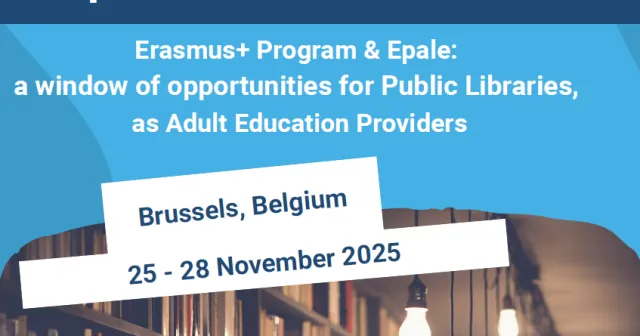EPALE focus: Non-formeel en informeel leren

Van 15–19 Augustus besteedt EPALE extra aandacht aan non-formeel en informeel leren.
Alhoewel het twee verschillende begrippen zijn, worden non-formeel en informeel leren nogal eens doorelkaar gebruikt als het gaat om het aanleren van kennis, vaardigheden en competenties buiten traditionele leeromgevingen als scholen.
Non-formeel and informeel leren zijn meestal ondergewaardeerd en niet genoeg onderzocht, maar het zijn leervormen die met name de benodigdheden tegemoetkomen van hen die in de meer tradionele routes niet succesvol waren.
Bij EPALE geven we graag meer aandacht aan deze vormen van leren. We voorzien daarom de professionals die zich bezig houden met het leren van volwassenen met praktische bronnen, interessante artikelen en handige tips over dit onderwerp. Kijk ook eens naar de hieronder belichte content die werd verzameld door de EPALE collega's in heel Europa.
Daarnaast is het ook mogelijk om alle artikelen met het subthema Niet formeel en informeel leren waarderen te bekijken.
Blogs
“Skills” – a key concept for the education sector? (DE)
Case study on Feeling Younger by Getting Older (EN)
Football educates (DE)
Informal learning – German perspective on EPALE (DE)
Learning and civic engagement (DE, EN, FR)
Migration, entrepreneurship and informal learning (DE, EN, FR)
Study Circle. Swedish method of adult education (EN, PL)
Validation based on qualification framework: Project Match2NQF (DE, EN)
Validation non-formal and informal learning – a holistic approach by Scotland (EN)
Validation of competences in the field of volunteering based on the European Qualification Framework (DE, EN, ES, IT, PT)
Women learn programming at Rails Girls Szczecin workshops (EN, PL)
Materialen
Brochure “Recognition in Germany” (DE)
ECVET in non-formal education - potential demand, implementation (DE)
Monitoring the use of validation of non-formal and informal learning (EN)
Recognition of Non-formal and Informal Learning: Country Practices (EN)
Recognising Non-Formal and Informal Learning: Outcomes, Policies and Practices (EN)
Recognition of Non-formal and Informal Learning: Pointers for policy development (EN)
Recognition and application of informal and non-formal learning (DE)
Recognition, Validation and Accreditation of non-formal and informal learning in UNESCO countries (EN)
Recognizing informally acquired skills in Germany (DE)
TEACH: about us (Newsletter) (EN)
TEACH: Understanding the barriers to learning (Newsletter) (EN)
The validation challenge: how close is Europe to recognising all learning? (DE, EL, EN, ES, FR, IT, PL, PT)
Video: recognition of skills in Europe (DE)
Commentaar
Bardzo ciekawy wybór. Jak dla
Bardzo ciekawy wybór. Jak dla mnie jeden z ciekawszych tygodni tematycznych na platformie. Chyba najnbardziej podobał mi się ten: /pl/node/6782
- Login of registreer om te reageren
Sistem certificiranja neformalno pridobljenega znanja
V Sloveniji obstaja v sistem nacionalnih poklicnih kvalifikacij, ki omogoča, da se neformalno pridobljena znanja formalizirajo, in omogoča, da posameznik pridobi uradno potrdilo s katerim ta znanja dokazuje. Uradno potrdilo s katerim posameznik dokazuje svoja neformalno pridobljena znanja oziroma svoje delovne izkušnje se imenuje certifikat o nacionalni poklicni kvalifikaciji (NPK).
Prodobne infomracije o možnosti certificiranja najdet na spletni strani ww.npk.si
- Login of registreer om te reageren





Apprentissage et Education : "non formel" et "informel"
Interroger les apprentissages non formels et informels c'est aussi, notamment mais pas seulement, interroger leurs usages et leurs rapports à l'éducation et donc leurs positionnements et leurs reconnaissances. En complément des ressources proposées, je me permets de refaire le lien sur le blog proposé le 10/06/2016 sur l'éducation formelle, non formelle et informelle qui souhaite définir ces termes.
Ces éléments sont en étroite interaction.